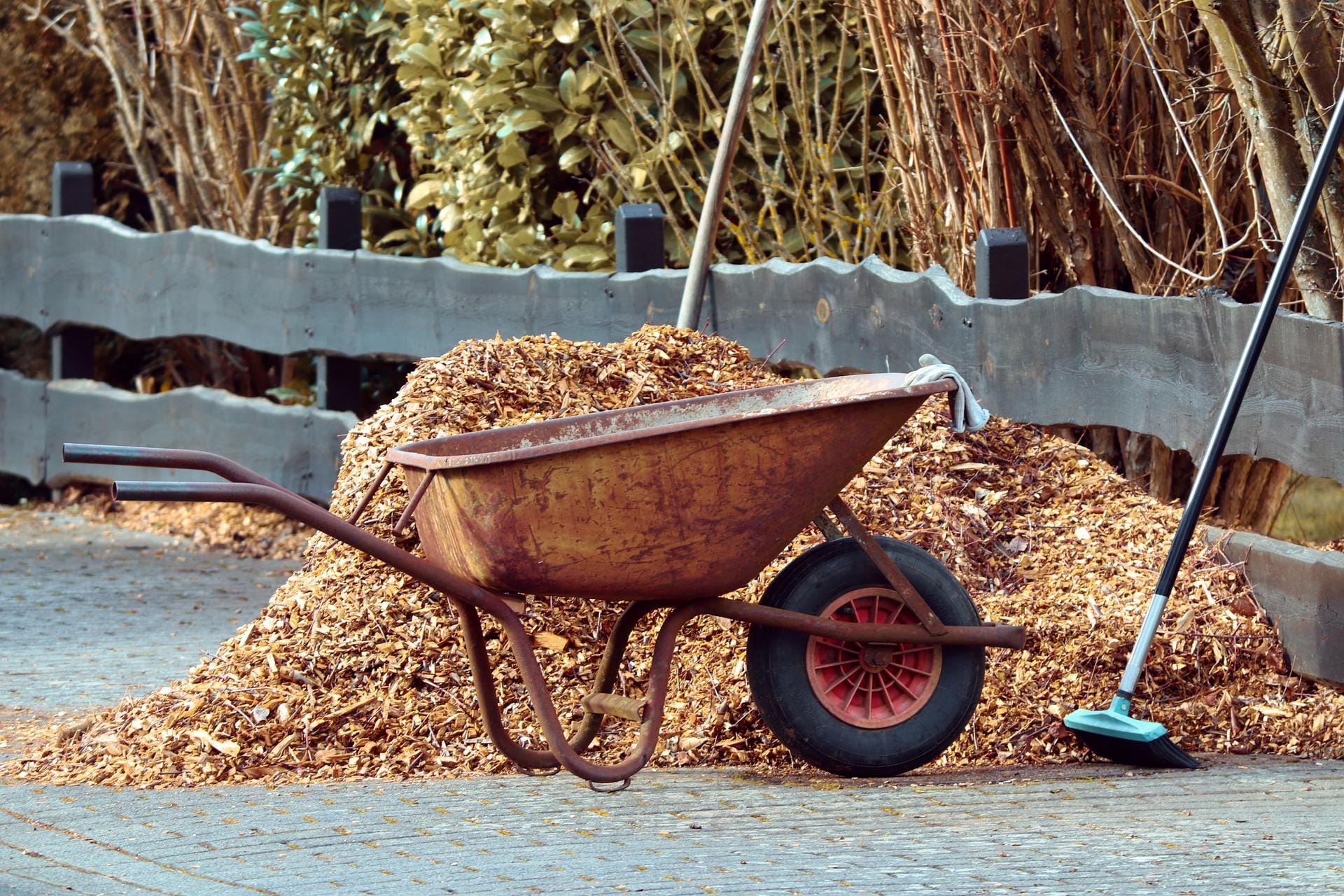Knowing the weight of a yard of mulch is crucial for planning your landscaping project. It affects everything from transportation logistics to budgeting. This comprehensive guide explores the factors influencing mulch weight, offers practical tips for calculating your needs, and provides insights to ensure a smooth and successful mulching experience.
Decoding Mulch Weight
The weight of a cubic yard of mulch isn’t a fixed number. It can fluctuate significantly, typically ranging from 400 to 1,000 pounds (0.2 to 0.5 tons), much like the weight difference between a small and large refrigerator. Several key factors contribute to this variation.
Mulch Material Matters
Different mulch types possess varying densities, impacting their weight. Hardwood mulches, such as oak or maple, are generally denser and heavier, potentially reaching the upper end of the weight range. Conversely, lighter options like pine bark are often closer to the 400-pound mark. Dive into the aromatic realm of mint with our comprehensive guide to mentha varieties, where you’ll find everything you need to know about cultivating this versatile herb.
The Moisture Effect
Moisture content significantly influences mulch weight. Think of a dry sponge versus a soaked one; the difference is substantial. Similarly, wet mulch can weigh considerably more than dry mulch, sometimes even doubling its weight. This is crucial to consider, especially after rainfall.
Other Weight Influencers
Beyond material and moisture, other factors subtly affect weight:
- Compaction: Loose, fluffy mulch weighs less than tightly packed mulch, a factor influenced by handling and transportation.
- Particle Size: Larger mulch pieces generally result in a heavier load compared to finer, shredded bits.
- Additives: Some mulches contain added nutrients or dyes, which can slightly increase the overall weight.
Calculating Your Mulch Needs
Accurately estimating your mulch requirements is crucial for both budgeting and logistics. Here’s a step-by-step guide:
- Measure the Area: Determine the square footage of the area you plan to mulch by multiplying length and width.
- Determine Desired Depth: A typical mulch depth is 2-4 inches (5-10 cm).
- Calculate Volume: Use the following formula: Volume (cubic feet) = Area (sq. ft.) x Depth (ft.) / 27 (cubic ft. per cubic yard).
- Estimate Weight: Multiply the volume (cubic yards) by the estimated weight per cubic yard (400-1000 lbs) based on the chosen mulch type and moisture level.
Online mulch calculators can simplify this process, providing tailored estimates based on your specific inputs.
Practical Tips for Mulch Handling
- Consult Your Supplier: The most accurate weight estimate comes from your mulch supplier, as they know their product’s specifics.
- Choose Dry Mulch: Opt for dry mulch when possible, as it’s lighter, easier to transport, and often less expensive.
- Handle with Care: Mulch can be messy. Exercise caution during loading and unloading to avoid spills and potential damage.
- Respect Vehicle Capacity: Ensure your vehicle can handle the weight, particularly with wet mulch. Multiple trips are safer than overloading.
Mulch Weight by Type
While variations exist, the following table provides approximate weight ranges for common mulch types:
| Mulch Type | Approximate Weight Range (per cubic yard) |
|---|---|
| Hardwood Mulch | 800 – 1000 lbs (0.4 – 0.5 tons) |
| Pine Bark Mulch | 400 – 600 lbs (0.2 – 0.3 tons) |
| Shredded Bark Mulch | 500 – 800 lbs (0.25 – 0.4 tons) |
| Cypress Mulch | 400 – 600 lbs (0.2 – 0.3 tons) |
| Rubber Mulch | 800 – 1200 lbs (0.4 – 0.6 tons) |
Mulch in Your Pickup
Transporting mulch in your pickup can be cost-effective, but understanding your truck’s capacity is essential.
Truck Size and Mulch Capacity
- Standard Pickup (4×8 ft bed): Typically holds 1.5 to 2 cubic yards.
- Long-Bed Pickup (6×10 ft bed): Can accommodate up to 4 cubic yards.
Loading Your Pickup Safely
- Even Distribution: Distribute the mulch evenly in the truck bed for balanced weight and to prevent shifting during transit.
- Secure the Load: Use a tarp or netting to contain the mulch and prevent it from blowing out, especially at higher speeds.
- Avoid Overloading: Prioritize safety by not exceeding your truck’s weight capacity. Overloading can damage your vehicle and create dangerous driving conditions.
Calculating Mulch for Your Truck
- Measure Your Truck Bed: Determine the length, width, and height of your truck bed.
- Calculate Volume: Multiply the length, width, and height (in feet) to find the cubic feet. Divide by 27 to convert to cubic yards.
- Consider Mulch Type: Remember that fluffier mulches like shredded bark will occupy more space than denser wood chips. Adjust your estimate accordingly.
- Consult Your Supplier: They can often advise on how much of their specific mulch type your truck can safely hold.
Ongoing Research and Future Considerations
Research in soil science and mulch properties is ongoing. While the information provided here represents current understanding, ongoing studies may further illuminate these complex relationships. If you’re looking to indulge in the fruity goodness of homemade wine, our step-by-step guide on how to make muscadine wine will guide you through every stage of the process, from harvesting the grapes to bottling your creation.
By carefully considering these factors and planning accordingly, you can ensure a successful and efficient mulching project.
- Discover Long Black Pepper: Flavor & Health Benefits - April 25, 2025
- Shocking Twists: The Grownup Review: Unreliable Narration - April 25, 2025
- A Quiet Place Book vs Movie: A Deep Dive - April 25, 2025
















